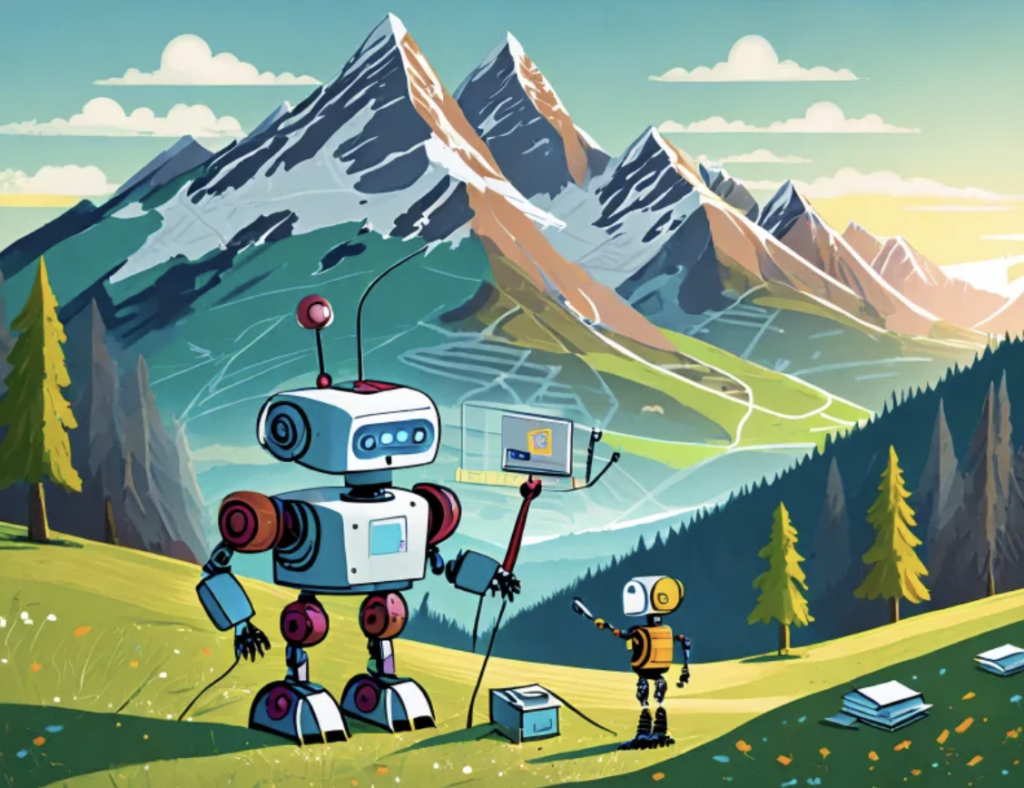by Aiglon College
As Artificial intelligence (AI) technology advances, effectively utilising available information becomes increasingly crucial. Skills developed through the exploration of Computer Science, innovation, and engineering are thus essential for the evolving demands of the workplace.
Teaching innovation starts by taking a hands-on, experiential approach to learning. “It’s about learning something new and then getting the chance to use that information to create something cool,” Mr Jason Machin (Computer Science Teacher) explains. “Innovation in Computer Science is fundamentally about problem-solving.”
At Aiglon College today, students have ample opportunities to flex those muscles. Students in Year 7, who will be visiting NASA at the end of the school year, are currently building a Mars rover, a remote-controlled robot designed to simulate traversing the surface of the red planet. Those in Year 8, who will head to Greece for a boating expedition, are building 3D-printed catamaran boats. “We go through the principles of electronics, we go through the principles of coding; we get creative with coming up with solutions to problems,” Mr Machin says. This project will lead to further investigation of the ocean cleanup project and sustainability.
In Computer Science, students in Exploration years work on projects that include basic circuits and robot rovers. This term, ten Year 11 students will begin constructing a droid inspired by the Star Wars franchise. Moving further up the years, the Year 13s are about to start an investigation into autonomous rescue robots and person recognition principles.
But innovation is about more than computers and programming. While that might be his background — before becoming a teacher, he worked in the tech industry — he believes innovation can be incorporated into every subject. “The crossover, whether in history, art, drama or sports, is massive,” he points out.
For instance, Computer Science and Art students recently attended a dance show in Villars, which featured performances from Geneva. The performers were digitally transformed into avatars for the Villars’ audience. “The art students were looking at it from a creative perspective, and the computer science students were looking more at the technical side, wondering how it was rendering so fast, questioning the balance between server-side or client-side rendering,” he recalls. “But each set of students became more open-minded about where they can use their skills and how they can apply their interests.”
And that’s what innovation is, in essence, about. “When you’re just following a strict curriculum, it’s a little ‘this is exactly what you’ve got to do,’” Mr Machin says. “But we also have to allow students to explore beyond the set curriculum and discover things on their own.” It’s an approach that has allowed many innovative student-led projects to thrive. Here, we have a variety of student-led activities,” Mr. Machin elaborates—Web Development, 3D Design and Engineering, Robotics Engineering, and the Coding Club. “Students are free to propose new activities, and if it sounds like a new idea, I ask them to pull together a quasi-curriculum, and then they lead it; I’m just there to guide them.”
It’s also an approach that, in the age of AI, will set up students for a world where knowledge retention and rote learning matter less and less. “It helps students realise that it’s not just about sitting in a classroom and regurgitating information from a book,” Mr Machin says. “Innovation is about taking the information you’ve learned and doing something with it. And that will set them apart.”.
We are at an incredibly exciting juncture in education. The recent advances in AI technology will act as a catalyst for positive change within the educational system, further inspiring young minds to innovate and pursue their passions. Aiglon is a leader in character education, and we hope that our developments in innovation and Computer Science will likewise become emblematic of our commitment to holistic education.









